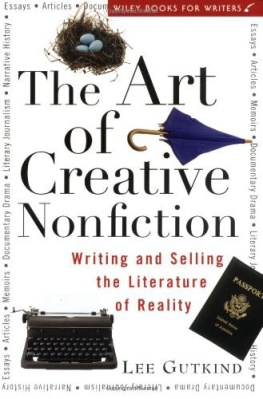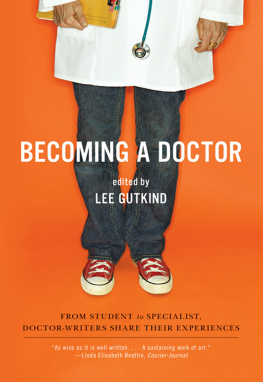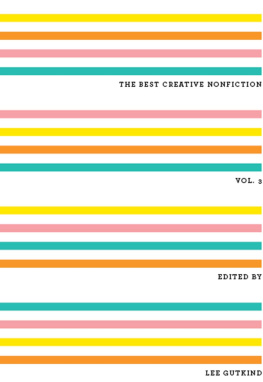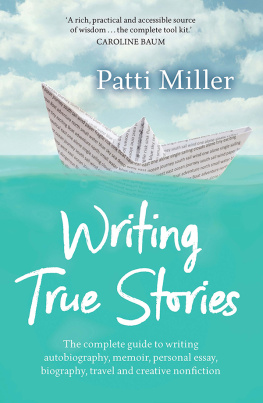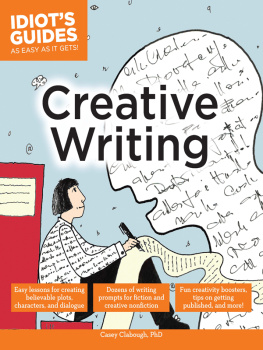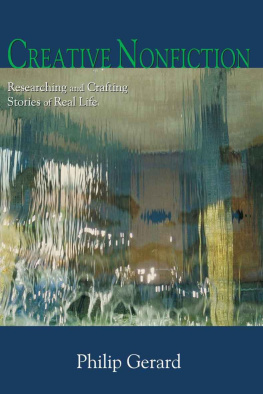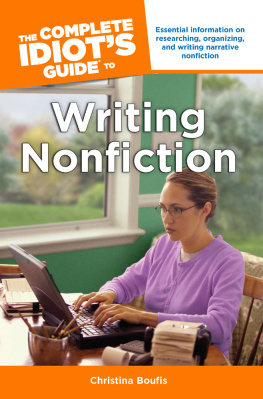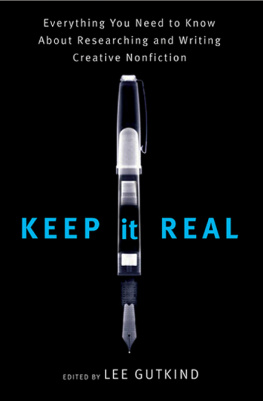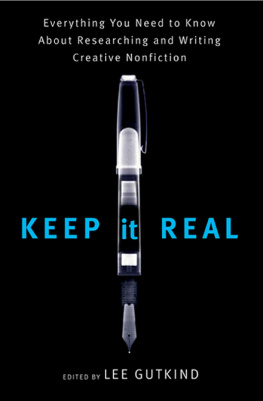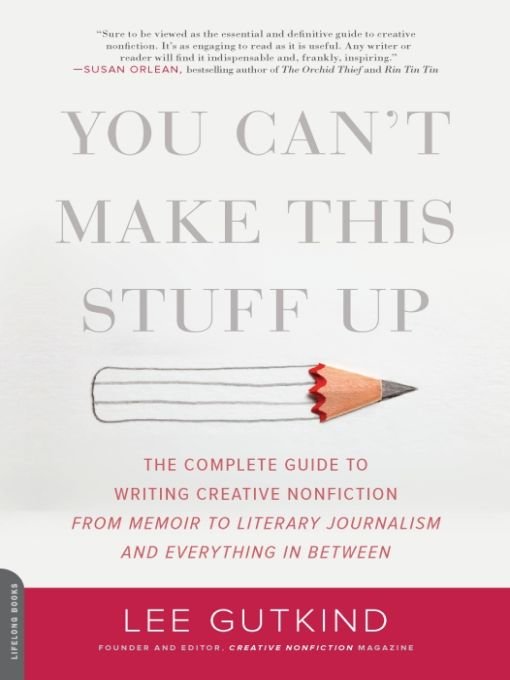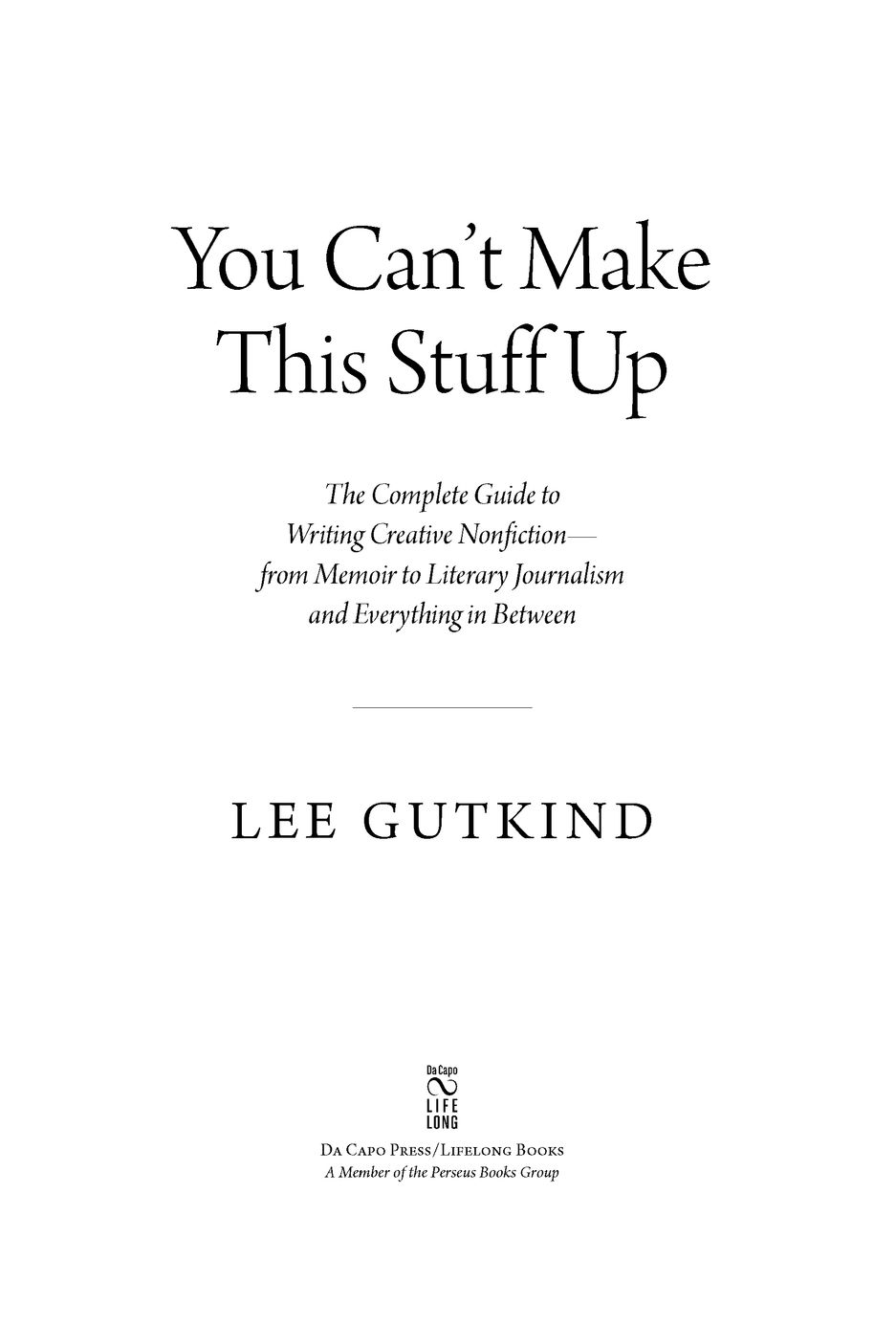Table of Contents
Praise for Lee Gutkind
Gutkind is the Godfather Behind Creative Nonfiction.
Vanity Fair
The Leading Figure in the field.
Harpers
An electrifying anthology that covers the creative nonfiction universe from the personal essay to nature writing, literary journalism, and science writing.
Booklist, Starred Review, on In Fact
Praise for Almost Human:
A crazy suspense story about these kids at Carnegie Mellon and their leader making robots... fascinating stuff.
Jon Stewart
A fascinating look inside a place where sci-fi dreams are being made real.... High tech at its most exhilarating.
Kirkus Reviews
A compelling account that reveals how far [roboticists] have come, but how far they have yet to travel to create machines with human sensibilities and gumption.
Pittsburgh Post-Gazette
Praise for Forever Fat:
This collection of beautifully crafted personal essays... demonstrates the authors mastery over his chosen genre. Always engrossing, the pieces convey emotional pain leavened with humor and are written with piercing honesty.
Publishers Weekly
Gutkind strides openly into any subject. His essays combine humor, pathos, confession, insight. They attract for their openness and style.... Entertaining reading, any one of the essays could also serve as a model for exemplary nonfiction, lending the volume to use as a text for classes or individual study in contemporary writing.
University Press Book Reviews
Gutkinds writing is deceptively simple. Its a clean, sleek style, with sentences as black-and-white as the cover photo. But they pack a wallop.
Naples (FL) Daily News
Lee Gutkind writes, Trusting other people is the easy part. But the truth is, whether hes writing of Plantars warts, coffee in a Pittsburgh diner, or even divorce and fatherhood, Lee Gutkind is the one its easy to trust. He takes care with the word in all its glory.
Bret Lott, author of Jewel and Fathers, Sons, and Brothers
Forever Fat is a deeply moving account of one mans physical and spiritual transformation, where the words, Never, never, never give in have particular resonance for anyone who has tried to piece together the truth of ones life on the page, against the doubting voices that surround us.
Terry Tempest Williams, author of Leap and Refuge:
An Unnatural History of Family and Place
A book about identity, the cruel threats ones family can make to ones sense of self, and the courage and clarity of vision it takes to transcend the injury. The essays are brimming with dramatic intensity, astute observation, wit, and narrative skill.
Lee Martin, author of From Our House
Praise for Almost Human:
Almost Human is an eloquent meditation on the fragile and increasingly friable line between flesh and metal, dendrites and wires. This book tells the tale of mad scientists and the strangely sane machines they create; in doing so, it illuminates the rarified world of computer science while simultaneously transcending it, or widening it, by bringing to light the essential questions robots raise for usquestions of autonomy, of cognition, of ambition and the toll it takes.
Lauren Slater, author of Welcome to My Country,
Prozac Diary, and Opening Skinners Box
ALSO BY LEE GUTKIND
Almost Human: Making Robots Think
Anatomy of Baseball
The Art of Creative Nonfiction
At The End of Life: True Stories About How We Die
Becoming a Doctor: From Student to Specialist,
Doctor-Writers Share Their Experiences
The Best Creative Nonfiction, Volumes 1, 2, and 3
The Best Seat in Baseball, But You Have to Stand
Bike Fever
Creative Nonfiction: How to Live It and Write It
The Essayist at Work
Forever Fat: Essays by the Godfather
Gods Helicopter
Healing
An Immense New Power to Heal:
The Promise of Personalized Medicine
Keep It Real: Everything You Need to Know About
Researching and Writing Creative Nonfiction
Many Sleepless Nights
One Childrens Place
On Nature: Great Writers on the Great Outdoors
Our Roots are Deep with Passion
The People of Penns Woods West
Silence Kills
Stuck in Time: The Tragedy of Childhood Mental Illness
Surviving Crisis
Truckin with Sam
The Veterinarians Touch
A View from the Divide
This book is dedicated to Gay Talese in appreciation of his talent, his integrity, his unwavering dedication to his work, and most of all his friendship. Gay Talese is an inspiration to writers of all genres, everywhere.
ACKNOWLEDGMENTS
Thanks so much to Gay Talese, Rebecca Skloot, Eve Joseph, Lauren Slater, Meera Lee Sethi, and Adam Briggle, whose work we will be studying in depth in this book. Thanks to the staff of Creative Nonfiction for joining me as the collective voice of the genre: Stephen Knezovich, Patricia Park, Jenelle Pifer, Ginny Levy, and especially Hattie Fletcher, who single-handedly put together Then and Now: Great (and Not So Great) Moments in Creative Nonfiction, the appendix at the back of this book. Thanks to my onward and upward agent, Andrew Blauner, and my onward editor, Renee Sedliar. Thanks to Anjali Sachdeva, also of Creative Nonfiction, for reading and commenting on the initial draft of this book. Thanks to the Consortium for Science Policy & Outcomes and the Hugh Downs School of Human Communication at Arizona State University for supporting me and believing in my work. Thanks to my assistant at ASU, Michael Zirulnik, for fact checking the manuscript, proofreading, and putting together the bibliography. Thanks to Michele Pasula for inspiration. Thanks to Kathryn Lang for reading the book multiple times, for making many helpful suggestions, and for nitpicking me to death. And thanks to my readers, who are helping me put my son through college, grad schooland beyond.
INTRODUCTION: HOW TO READ THIS BOOK
This book is divided into two parts. Part I defines creative nonfiction, tells you how and when creative nonfiction evolved, who the prime movers are, what the primary challenges are, and why creative nonfiction has become so popular and important in the literary, scholarly, journalistic, and publishing worlds.
Ive titled Part I What Is Creative Nonfiction? If there were a subtitle, it would read: Everything You Ever Wanted to Know, Everything That Is Important to Know, and Everything I Can Think of Related to Creative Nonfiction to Tell You, ExceptHow to Write It.
Writing is an integral aspect of every page in Part I, which provides the parameters that will guide you as you conceive of your creative nonfiction writing product, whether it be essay, article, memoir, or book. Part I will help you as you choose a subject to write about, decide how and why you will or will not be a character in it, how you will research it, flesh it out for the first time on paper or computer display, fact-check it, edit it, polish it, pray for itand continuously revise it.


